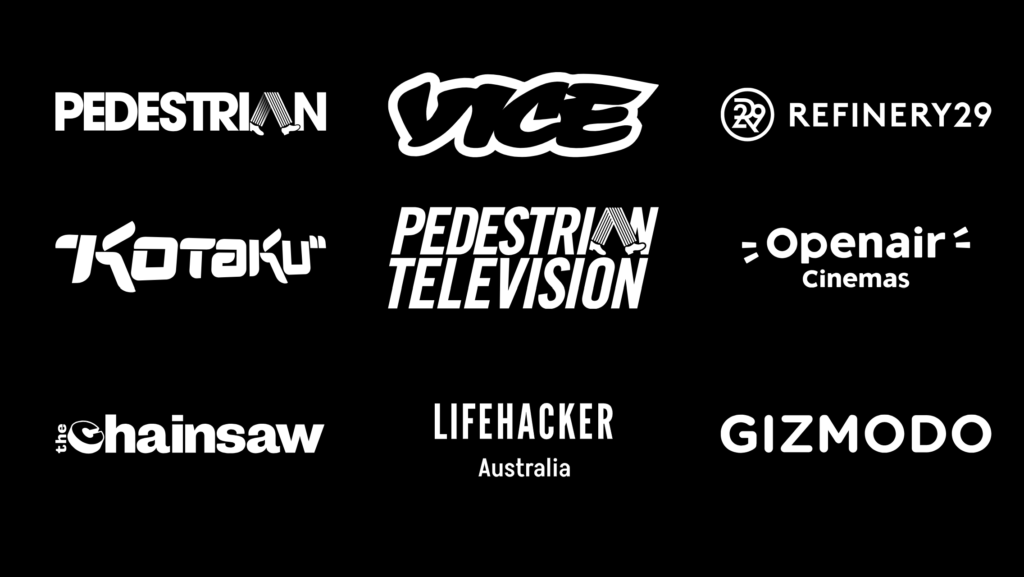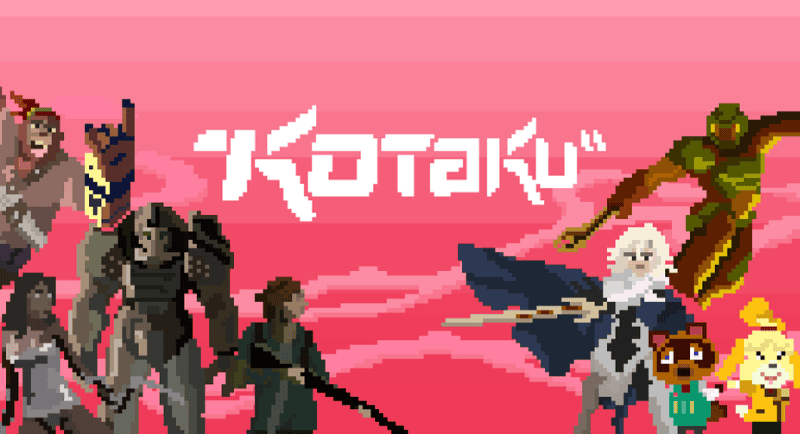President of the Science Journalists Association of Australia and freelance games journalist, Jackson W. Ryan says that while tech journalism in Australia has been doing “okay”, games journalism in the country is “on its deathbed.”
Speaking to Mediaweek, Ryan said that games journalism in Australia, similar to games in the marketing world, is still looked down on.
“This [looking down on] is somewhat related to the “respect”, for lack of a better word, that tech journalism commands in comparison to games and the way that tech influences daily life,” he said.
“Games, though having incredible impacts on people, both positive and negative, are not respected in this same way.
“It’s also to do with corporate greed and misunderstanding of the opportunities presented by video games, the Google SEO slop machine… the list goes on.”

Pedestrian brands
Pedestrian Group, owned by Nine Entertainment, decided to “transition out of current brand licences” in July, which saw the closure and staff redundancies of Australian versions of brands including Gizmodo, Lifehacker, Vice, Refinery29, and Kotaku.
The cuts happened alongside the departure of Pedestrian CEO, Matt Rowley. In a note to staff seen by Mediaweek, Rowley wrote that “Pedestrian Group has been a highly successful business, but over the past two years, we’ve seen a number of changes that have impacted the financial performance of the licensed brand model.”
Those changes, according to Rowley, included license partners facing financial headwinds, a decline in the broader advertising market that “has impacted all parts of the Nine Group” and “the continued growth of global platforms such as TikTok and Instagram.”
Gizmodo AU was a news website that covered consumer technology, gadgets, entertainment, auto, science and tech reviews. Kotaku AU was a games site that covered gaming news, reviews, deals, and gaming culture.
Games journalism may be mistaken to fall under the same banner as tech journalism, but Ryan stresses that the two are vastly different beats, and “should be regarded as such.”
He continues that tech journalists in Australia are “doing pretty wonderful work that has moved the needle on big issues.”
“I think immediately of Josh Taylor at The Guardian and Ange Lavoipierre at the ABC. I think of Ariel Bogle‘s impressive investigative work over the years. I think of Cam Wilson‘s internet culture work and how he’s very much at the frontier of important issues,” he said.
“There are many, many great tech journalists with a good platform and the fact these publications have a national tech editor is a good sign.”
Athina Mallis, managing editor at Gizmodo Australia was made redundant upon the closure of the Pedestrian brands and told Mediaweek in the past few years, she has seen “redundancies and closures of respected brands (in the industry) due to lack of funding and economic headwinds.”
“Last week was a heartbreaking moment [for] technology journalism [in Australia],” she said.
“From what’s happened, the outlook doesn’t seem positive but I believe we are agile, tough and malleable. This is a small hurdle in the industry but doesn’t signal the beginning of the end.
“Tech journalism in Australia will be around for a very long time.”
However, with the closure of Kotaku AU, the hopeful tone doesn’t continue for games journalism in Australia.
Former multimedia reporter at Kotaku AU, Emily Spindler wrote on LinkedIn that the site was “a space to spotlight voices and stories both from locally and afar.”
“I’ll miss the deep dives, interviewers, and unhinged takes,” she said.
“A legend in Aussie games media has been lost [last] week, and the landscape is worse for it.”

Jackson W. Ryan
Ryan points out that to his knowledge, no major mainstream publisher has a national games editor, writer, or even freelancer.
“Tim Biggs gets to cover games, sparingly, at Nine’s publications. The GamesHub guys, Steph Panecasio and Leah Williams, are both keeping the flame alive and a host of indies – who mostly do it because of passion and operate at a loss – are doing their darndest to provide compelling content,” he said.
The state of games journalism in the country is juxtaposed with the state of gaming content found on content creation sites such as YouTube or Twitch.
While there are creators who cover the latest game releases, reviews and news, it’s streamers such as Kai Cenat who show the immense popularity of the medium. Cenat averaged 100,000 viewers when he marathoned Elden Ring: Shadow of the Erdtree in June. He finished the game in just shy of 100 hours, and for the finale, had over 200,000 people watching on Twitch.
Ryan says people don’t have to look far to find gaming content online, and says it’s “not going anywhere”, but questions what this means for journalism.
“What do we want our video game journalists to be doing?” he asked.
“If they’re spending all day publishing the same press and marketing materials that [gaming companies] are because they need to feed the Google SEO machine, we’re not getting the most out of them.
“It’s pretty simple: Journalism is meant to be a public good, something that should benefit all of us and help us make better decisions. A more literate and informed society is a society that functions better.
“This is particularly true for games – the best games journalism will illuminate issues in the industry from a cultural and business perspective, it will shine light on unheralded aspects of the community and it will raise the profile of the industry at home and internationally.”
The future is uncertain for the space, and as wider redundancies hit all major media companies this year, the hope for corporations to make the future less uncertain is dwindling.
“The idea of reader-supported and journalist-owned outlets is probably the future, but the math doesn’t quite math just yet for Australian audiences,” Ryan said.
“Other avenues might be for Screen Agencies to provide some support for getting something new off the ground, because there is a gaping hole for something new.
“This should be a considered play that sees collaboration between the best in the biz working together to make something sustainable and meaningful.
“If you rush into trying to build something new right now because you think there’s nothing else, you will doom yourself.
“There’s momentum here, a slow-building momentum, to provide games journalism with a focus on Australia alongside the kind of coverage that made Kotaku great over the years, with a more global outlook.
“In addition to funding and support, games journalism must evolve – maintaining its place as a public good, but delivering a unique perspective that can’t be gained anywhere else.”
–
Top image: Kotaku AU
